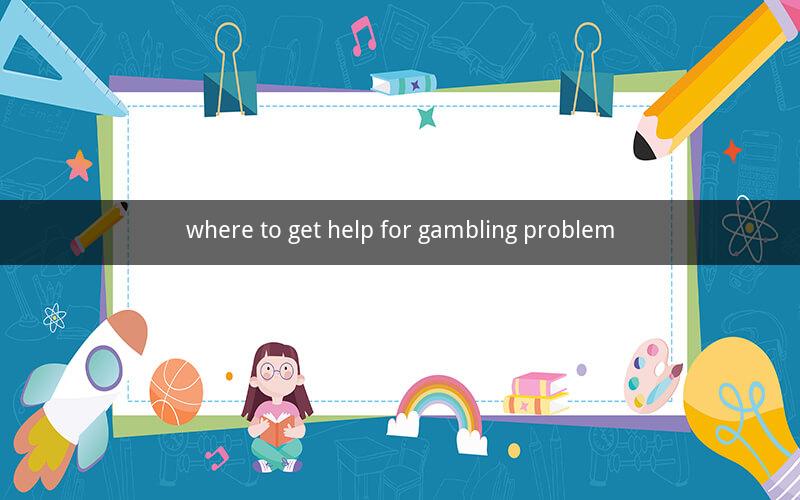
Table of Contents
1. Understanding Gambling Problems
2. Recognizing the Signs
3. Professional Help Options
4. Support Groups
5. Online Resources
6. Self-Help Techniques
7. Legal and Ethical Considerations
8. Cultural Perspectives
9. Case Studies
10. Conclusion
1. Understanding Gambling Problems
Gambling problems can manifest in various forms, ranging from mild to severe. It is essential to understand that gambling addiction is a legitimate condition that requires attention and intervention. Many individuals may not realize that they have a problem, which often hinders them from seeking help. Understanding the nature of gambling problems is the first step towards finding effective solutions.
1. Recognizing the Signs
Identifying the signs of a gambling problem is crucial. Common indicators include financial difficulties, loss of interest in hobbies, changes in relationships, and neglecting responsibilities. It is important to note that these signs may vary from person to person, and some individuals may experience more severe symptoms, such as depression, anxiety, or even suicidal thoughts.
1. Professional Help Options
Professional help is a vital component in overcoming a gambling problem. Therapists, counselors, and addiction specialists can provide personalized treatment plans tailored to individual needs. Various approaches, such as cognitive-behavioral therapy (CBT) and dialectical behavior therapy (DBT), have been proven effective in treating gambling addiction.
1. Support Groups
Support groups, such as Gamblers Anonymous (GA), offer a sense of community and understanding for individuals struggling with gambling addiction. These groups provide a safe space for members to share their experiences, learn coping strategies, and receive encouragement from others who have faced similar challenges.
1. Online Resources
The internet is a valuable tool for individuals seeking help for gambling problems. Online support groups, forums, and websites offer a wealth of information and resources. Many organizations provide chat rooms, email support, and live assistance to those in need.
1. Self-Help Techniques
Self-help techniques can complement professional treatment and support group participation. These methods include setting personal boundaries, avoiding triggers, and developing healthy habits. It is important to note that self-help techniques should not replace professional help but can be used as a supplement to the treatment process.
1. Legal and Ethical Considerations
Addressing gambling problems often involves legal and ethical considerations. Individuals may need to seek legal advice to resolve financial issues or protect their rights. Ethical concerns, such as confidentiality and privacy, should also be taken into account when seeking help.
1. Cultural Perspectives
Cultural perspectives play a significant role in understanding and addressing gambling problems. Different cultures may have varying attitudes towards gambling, which can impact how individuals seek and receive help. Recognizing and respecting cultural differences is crucial in providing effective treatment and support.
1. Case Studies
Case studies provide real-life examples of individuals who have overcome gambling problems. These stories can be inspiring and informative, demonstrating the effectiveness of various treatment approaches and the importance of seeking help.
1. Conclusion
Seeking help for gambling problems is a courageous step towards recovery. By understanding the nature of gambling addiction, recognizing the signs, and exploring various treatment options, individuals can take the first steps towards a healthier, more fulfilling life.
Questions and Answers
1. Q: What are the most common signs of a gambling problem?
- A: Common signs include financial difficulties, loss of interest in hobbies, changes in relationships, and neglecting responsibilities.
2. Q: Are there any legal implications of gambling addiction?
- A: Yes, individuals may face legal implications related to financial issues or illegal gambling activities.
3. Q: How can I find a reputable therapist for gambling addiction?
- A: You can search for licensed therapists specializing in addiction or contact local support groups for recommendations.
4. Q: Are there any medication options for treating gambling addiction?
- A: Medications are not commonly used to treat gambling addiction, but they may be prescribed to address co-occurring conditions, such as depression or anxiety.
5. Q: Can I attend a support group if I don't live near one?
- A: Yes, many support groups offer online meetings and resources for individuals who cannot attend in-person meetings.
6. Q: How long does it take to recover from a gambling problem?
- A: Recovery can vary from person to person, but many individuals find that they continue to improve over time with ongoing support and treatment.
7. Q: Can a person with a gambling problem still gamble in moderation?
- A: It is generally recommended that individuals with a gambling problem avoid gambling altogether to prevent relapse.
8. Q: What can family and friends do to support someone with a gambling problem?
- A: Family and friends can offer emotional support, encourage the individual to seek help, and participate in support groups for loved ones.
9. Q: Are there any alternative treatments for gambling addiction?
- A: Some individuals may benefit from alternative treatments, such as yoga, meditation, or art therapy, in conjunction with traditional treatment methods.
10. Q: How can I prevent a gambling problem from returning?
- A: To prevent a gambling problem from returning, it is important to maintain healthy habits, seek ongoing support, and avoid triggers that may lead to relapse.